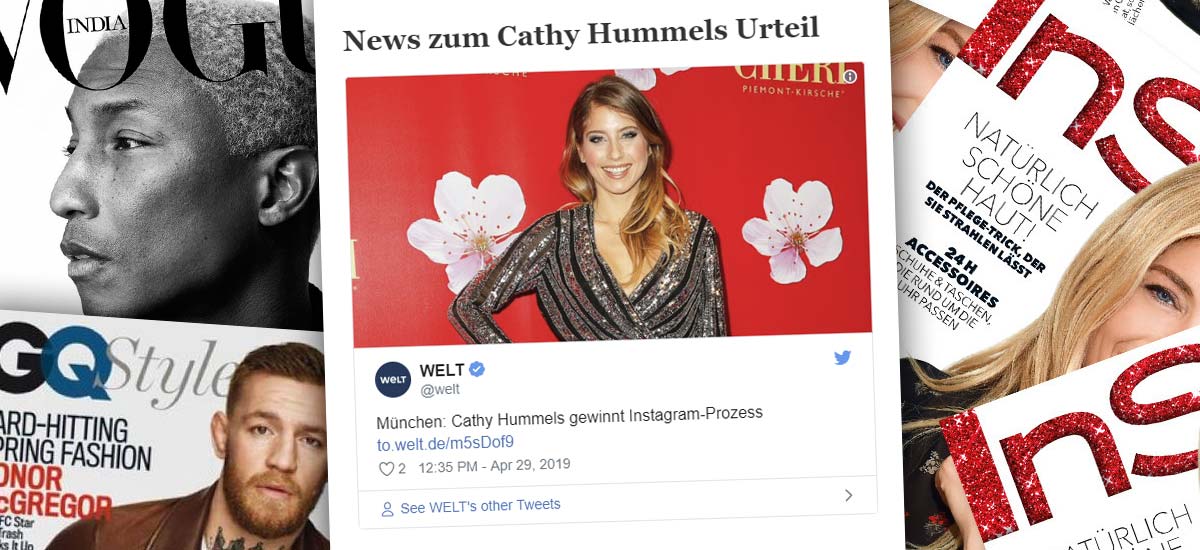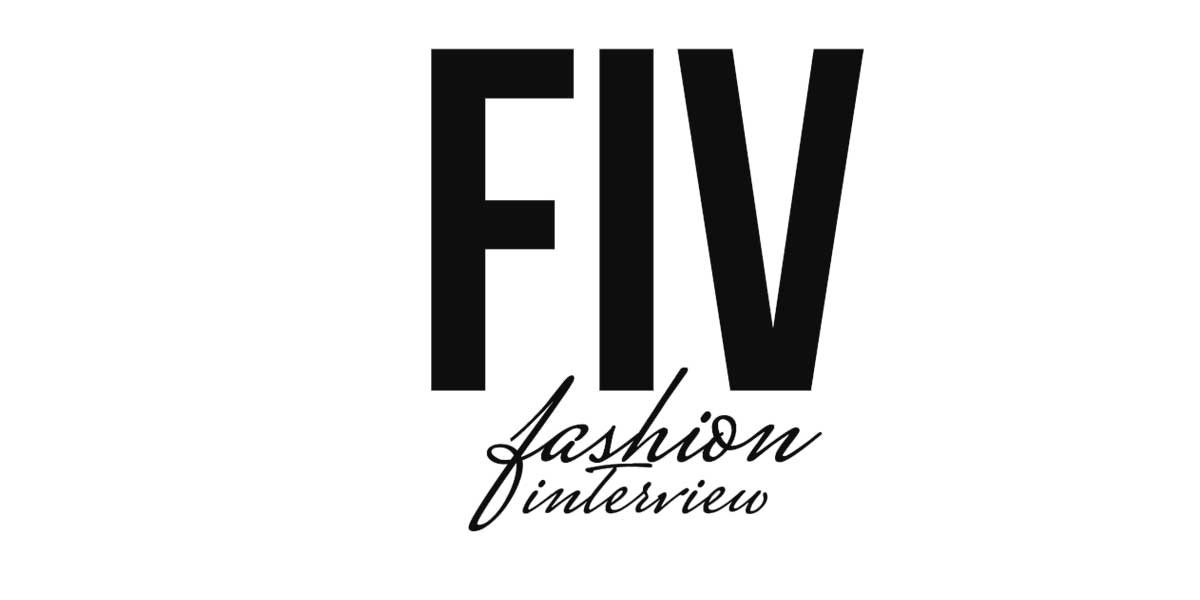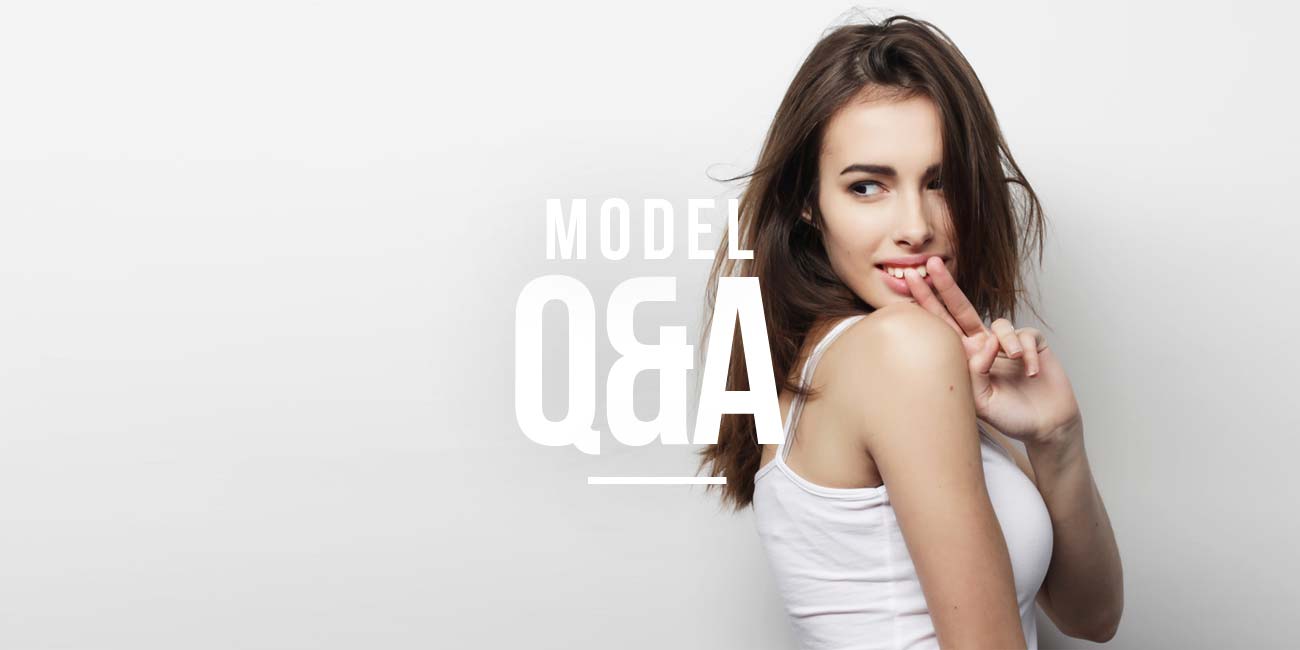Cathy Hummels wins trial in Munich: Advertising on Instagram – Judgement
Advertising on Instagram must be marked. This is what the current legislation provides for. But many ask themselves the question, when does a posting have to be marked at all? Today, a landmark judgement for many “influencers” was pronounced at Munich District Court. The case concerns Cathy Hummels, wife of the famous football player Mats Hummels, entrepreneur and celebrity. Through her public life she has collected many followers on Instagram. If it recommends and posts brands on Instagram, it would have to mark them as “advertising” according to current legal regulations. In 15 cases (photos), however, she is not said to have done so, which is exactly what is complained of by a “warning association” (according to taz). Now there was the decision of the court and it is trend-setting!
Warning Association laments and loses
Influencerin #Hummels postet bei #Instagram Bilder von Produkten, ohne sie als Werbung zu kennzeichnen. Ein Abmahnverband klagte – und verlor. https://t.co/7Uw9kXWvFj
— taz (@tazgezwitscher) April 29, 2019
The case of Cathy Hummel is so interesting because for the first time a new definition has been approved by the court.
What’s it about? Everyone knows what influencers do
Anyone who has many followers on Instagram is nowadays “nothing special” anymore, but is considered by the law, as well as celebrities in other media: topic surreptitious advertising. This includes small influencers with 10,000 fans as well as Cathy Hummels with almost 500,000 fans. This is exactly where the difference lies in the judge’s reasoning.
People with a smaller number of fans are not automatically assumed to be paid for something. It is quite different with prominent person, that is, persons on Instagram with a very high range. The term “influencer” has become a job description today. So if you assume that there is a general consensus that people with a high reach on Instagram earn their money with it, then everyone also knows that product placements can be paid advertising.
Short: Everyone knows what an influencer does!
The threshold has to be drawn between the definition if an account is still “private” or if it is perceived as private by the followers or if an account is clearly “prominent”. Prominent here has nothing to do with placement in other media (e.g. TV, magazines, etc.) but with the mere number of fans, i.e. people who know them.
Ergo, before there was Instagram and YouTube, the term influencer was hardly known (about before 2012). Today everyone knows that people on YouTube and Instagram earn their money. So it’s clear and obvious that Cathy Hummels is also one of those “influencers”. The followers and fans are therefore aware in advance that they will also place paid partnerships.
Everyone knows what an influencer does
The remarkable thing about this judgment is that it takes Instagram and the persons here, for the first time, seriously and does not regard as any quick idea of younger society.
The court trusts in the personal responsibility of the people, that is, the fans and followers. Previously, judgments were always interpreted in such a way that the fans and followers would not be mature, i.e. would not understand when it was advertising and when it was not. With this ruling, the court admits for the first time that the person on Instagram has a keen sense of who they are following, what that person is doing, what their job is, and of course that they occasionally advertise.
Influencer is a job like any other.
All previous judgments were clearly against the influencer. This resulted in punishments, for example in the verdict against Pamela Reif. Then Cathy Hummels and her sovereign appearance before the court has changed something for all influencers in Germany.
Well done, Mrs. Hummels!
Questions and Answers about: Advertising and labelling
Today our Social Media Expert Stephan M. Czaja from Social Media One, known from event to 250 guests and TV interviews with formats such as RTL Explosiv and Sat1 Frühstücksfernsehn, answers the most important questions and answers about advertising and labelling. Our first question:
Why does advertising have to be labelled?
The basic rule is that every posting on Instagram, including on other social networks such as Facebook, Youtube and Tik Tok, whether photo or video, must be clearly and unambiguously labelled “advertising” or “ad” in the description. The user must therefore immediately recognise that this is advertising. The labelling should always be at the beginning of the description, so that you can see immediately that the product shown here has been placed through paid advertising.
- Placement for paid content
- At the beginning of the description by clear labelling “Advertising”
What is the difference between paid posting and sponsored posting?
Sponsored and paid postings are now standard in Instagram Marketing. If you ask me now, when do you start making money on Instagram? Anyone on Instagram with a reach of over 50,000 people will sooner or later come into contact with queries about paid advertising. People on Instagram among 50,000 fans usually get sample products sent, which means they can keep the products afterwards. Whoever collects more and more fans will sooner or later also receive offers in which not only products are possible, but also money flows, i.e. payment for the posting. These are the two fundamental differences between paid posting and sponsored posting.
In both cases it is advertising.
After the judgement, one should mark the postings further with advertisement?
Caution is better than indulgence, therefore paid postings, especially from younger influencers without agency, management or legal advice, should always mark postings with the abbreviation “advertising” or “ad” right at the beginning, as described. Until there is a clear legal regulation on this subject, there is always a residual risk of receiving a complaint.
As a rule, however, such cases focus on prominent influencers. As a rule, it is the plaintiff’s concern to ensure that the cases are as spectacular as possible, i.e. receive as much media attention as possible through print magazines, TV but also online portals – Fame! This is shown by the legal hearing with Pamela Reif but also by the current case with Cathy Hummels.

























